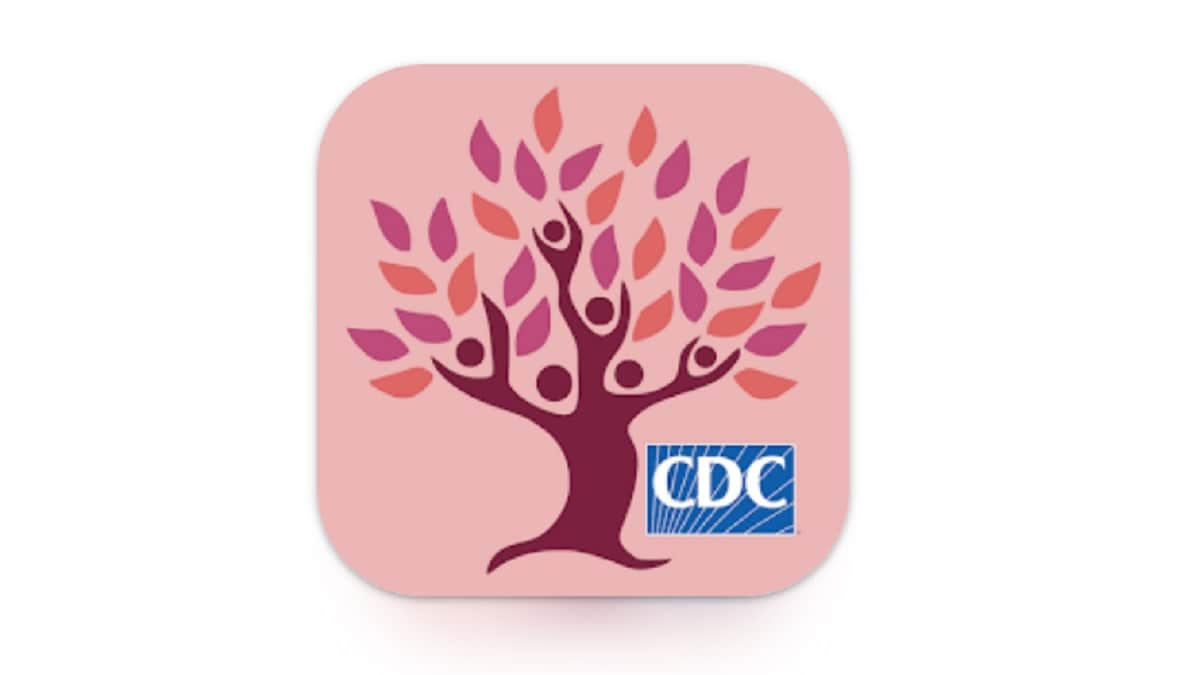At a glance
This page provides the algorithm that the My Family Health Portrait: Cancer app uses to evaluate risk for hereditary colorectal cancer.

My Family Health Portrait: Cancer
CDC's My Family Health Portrait (MFHP): Cancer app helps you collect your family's history of cancer and understand your risk for breast, ovarian, and colorectal cancer. Android users can download the app from Google Play and iOS users can download the app from the App Store.
Note: This algorithm assesses risk based only on family health history. It does not account for other risk factors, such as age, body mass index, eating habits, physical activity, smoking, and alcohol use.
Risk factors
If any of 1 through 15 are positive, the result is "Increased Risk."
- You have had colon or rectal cancer.
- You have Lynch syndrome.
- You have had colon polyps.
- You have familial adenomatous polyposis (FAP).
- You have inflammatory bowel disease (ulcerative colitis or Crohn's disease).
- You have had endometrial or uterine cancer.
- Your relative (parent, sibling, half-sibling, child, grandparent, aunt, or uncle) has Lynch syndrome or FAP.
- Your parent, sibling, or child has had colon or rectal cancer.
- Your parent, sibling, or child has had colon polyps.
- Two or more of your aunts, uncles, grandchildren, or half-siblings had colon or rectal cancer.
- Your aunt, uncle, grandchild, or half-sibling had colon or rectal cancer before age 50.
- Your relative had uterine cancer before age 50.
- Two or more of your relatives had uterine cancer at any age.
- You or your relative had a cancer related to Lynch syndrome (colorectal, endometrial, uterine, gastric, ovarian, pancreatic, kidney, or brain) before age 50.
- Two or more of your relatives had a cancer related to Lynch syndrome at any age.
"What to do next" output
All outputs include links to "Learn more about hereditary colorectal (colon) cancer" and "Learn about genetic testing and counseling."
If 1 is positive and 2 is negative, the output is:
Talk with your healthcare provider about
- Your risk and family history of cancer
- Appropriate follow-up care and screening
- If Lynch syndrome screening is appropriate
Share this information with your family members
If 2 is positive, the output is:
Talk with your healthcare provider about
- Your risk and family history of cancer
- Appropriate follow-up care and screening
Share this information with your family members
If 1 and 2 are negative and any of 3 through 15 are positive, the output is:
Talk with your healthcare provider about
- Your risk and family history of cancer
- If Lynch syndrome screening is appropriate
Share this information with your family members
If all answers are negative, the output is:
Discuss appropriate screening options with your healthcare provider
Be sure to update your family history with any new cancer diagnoses
